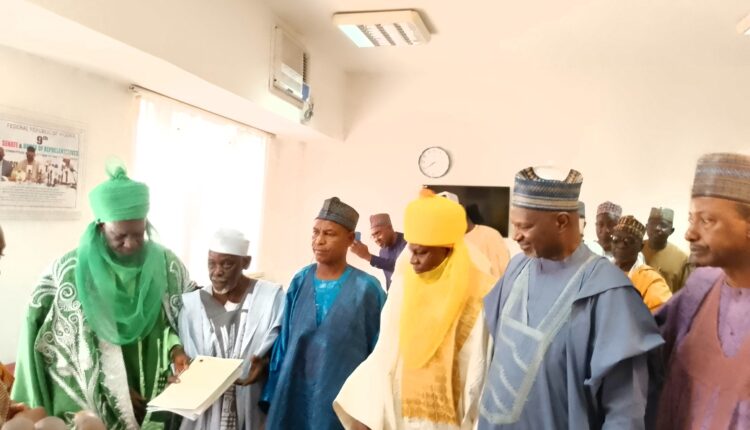Elders, Legislators Push for Creation of Hadejia State at National Assembly
A delegation of elders, opinion leaders, royal fathers, and legislators on Tuesday stormed the National Assembly to advance the constitutional process for the creation of Hadejia State from Jigawa State.
Led by the Chairman of the Movement for the Creation of Hadejia State, Malam Musa Shu’aibu, the group submitted a memorandum detailing the historical, economic, and social justifications for their demand. Shu’aibu emphasized that the movement was driven by the people’s desire to take control of their development and destiny.
In his address, Shu’aibu highlighted how the 1906 conquest of the Hadejia Emirate and the introduction of the provincial system in 1926 eroded the region’s autonomy, limiting its ability to fully harness its economic potential.
Despite being one of the largest emirates in terms of size, economy, and population, Hadejia has not received development proportional to its contributions to the region’s GDP.

Hadejia, named after the Hadejia River, supports the livelihoods of thousands of residents. According to the 2006 census, the proposed state had a population of 1,245,571, which has now grown to an estimated 1,811,185.
The proposed Hadejia State would consist of eight local government areas, three federal constituencies, and nine state assembly constituencies, all from the Jigawa North East Senatorial District.
Shu’aibu underscored the region’s vast land, water bodies, rich soil, and abundant animal resources, stating that these assets remain largely untapped under the current state structure. He argued that if granted statehood, the people of Hadejia could effectively utilize their resources to drive economic growth and contribute significantly to the nation.
Drawing a comparison, he cited Bayelsa State, which was created in 1996 with six local governments.
At the time, Hadejia also had six local governments but was not granted statehood. Today, Bayelsa has eight local governments and remains a state, while Hadejia, which now also has eight, continues its struggle for recognition.
The delegation was led to the Senate by Senator Ahmed Abdulhamid Malam Madori, representing Jigawa North East Zone, for the formal submission of their memorandum.
The group expressed confidence that their request would receive favorable consideration, insisting that Hadejia has the capacity to function as an independent state.
“We believe in our potential. If granted statehood, we will harness our resources to benefit our people and contribute even more to Nigeria’s development,” Shu’aibu declared.
The movement for Hadejia State now awaits deliberation by lawmakers as part of the constitutional amendment process.

